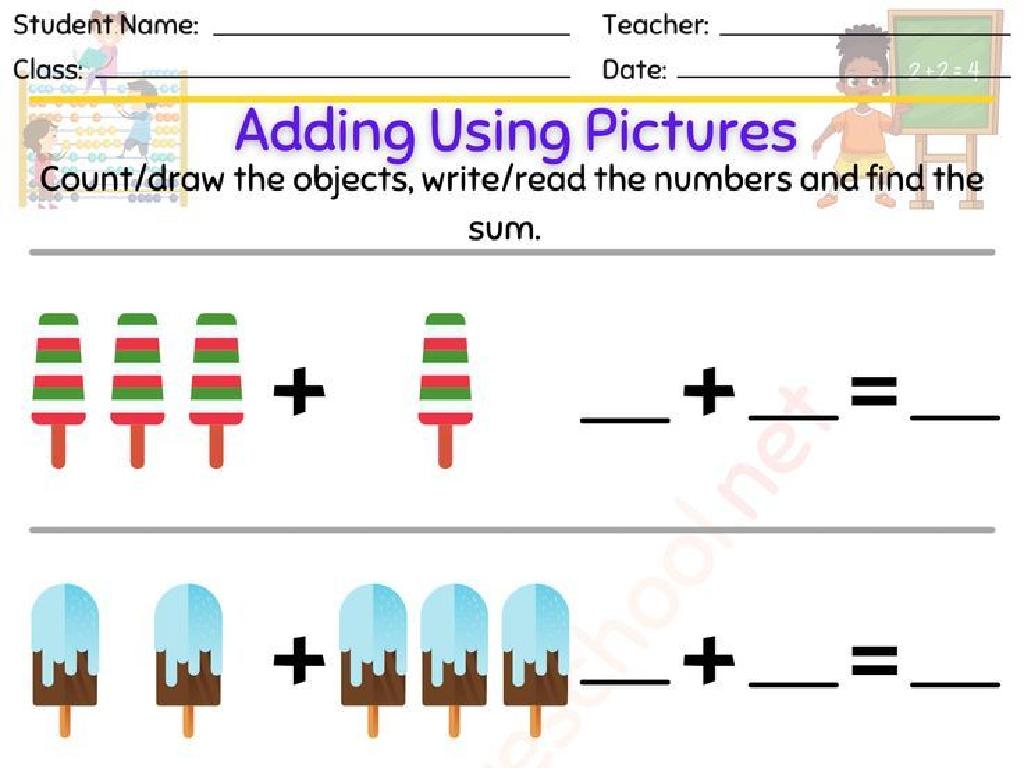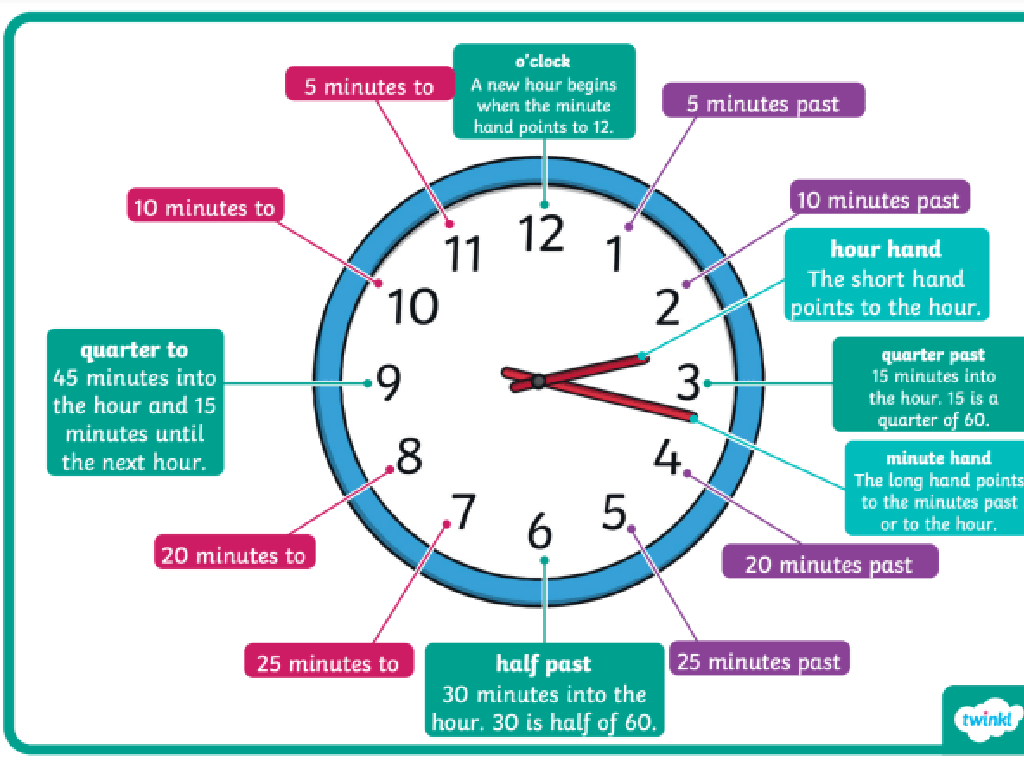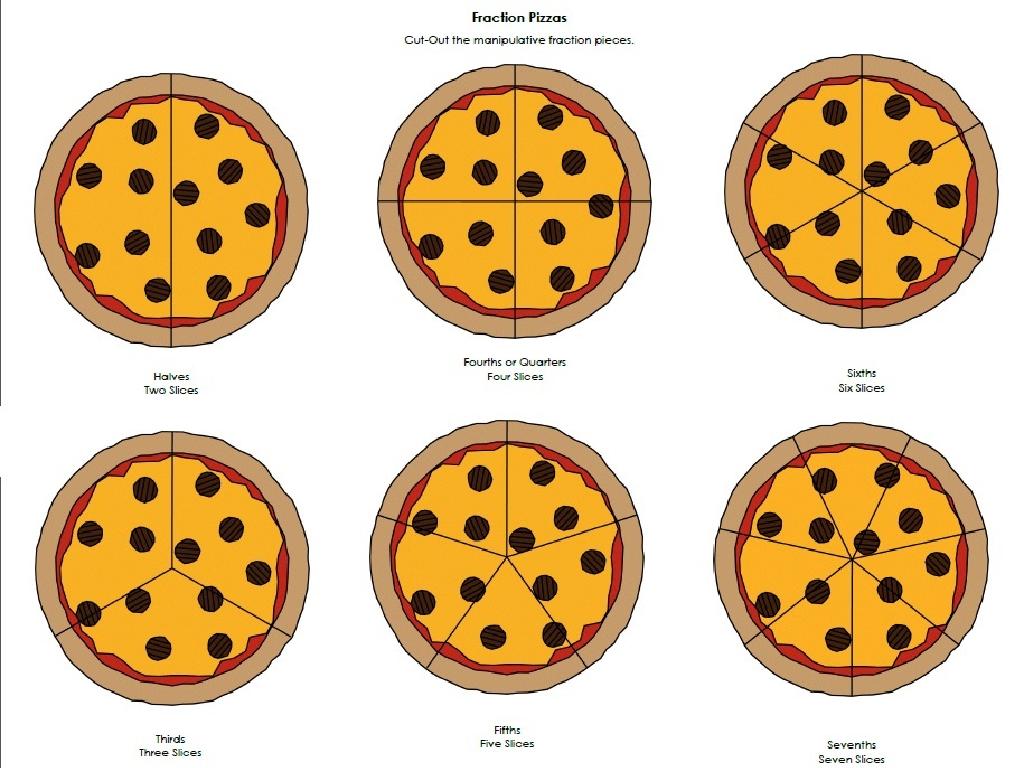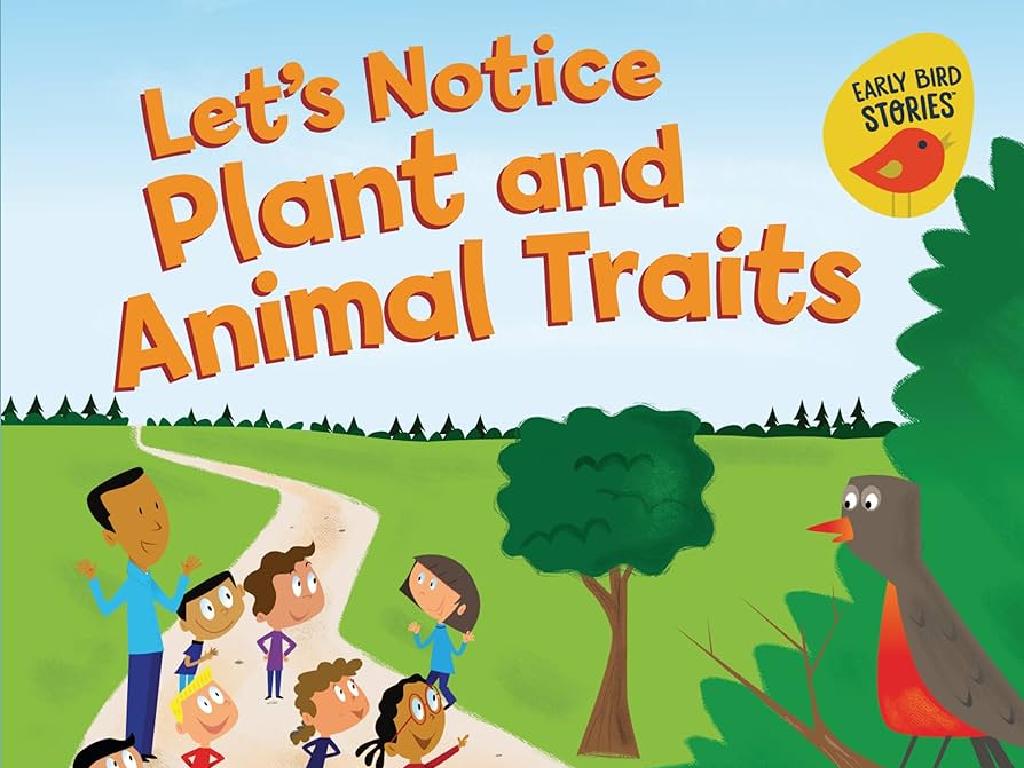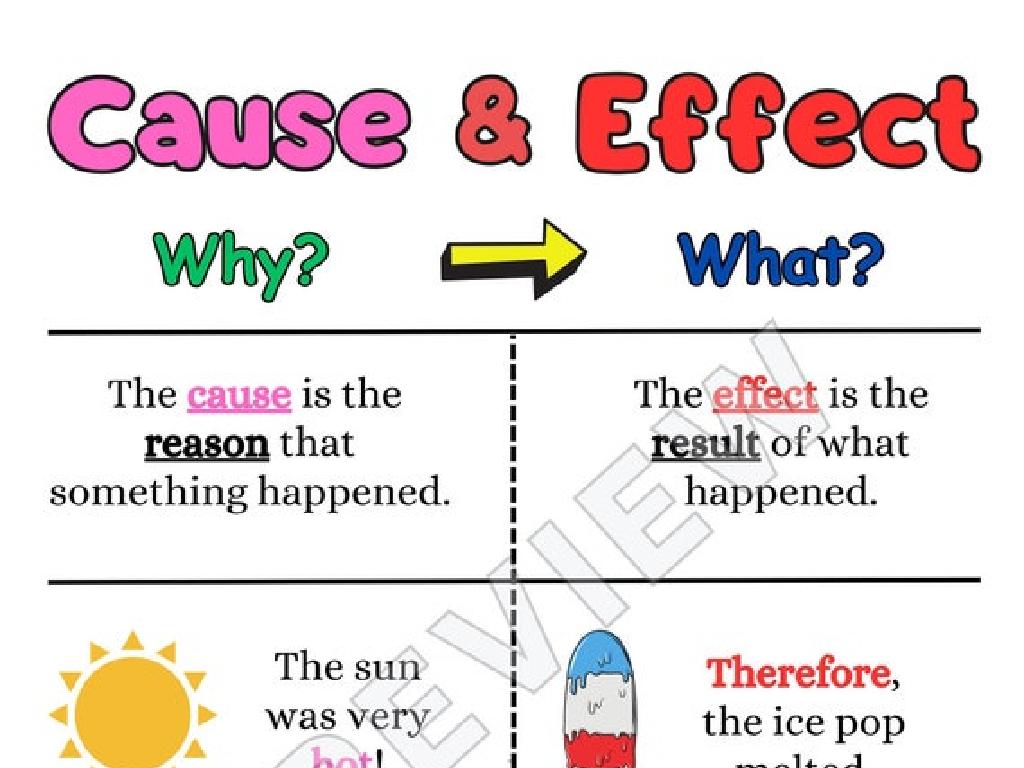Words With Pre-
Subject: Language arts
Grade: Eighth grade
Topic: Prefixes And Suffixes
Please LOG IN to download the presentation. Access is available to registered users only.
View More Content
Exploring Prefixes and Suffixes
– Building blocks of words
– Defining prefixes and suffixes
– Prefixes/suffixes modify meaning of root words
– Common prefixes: ‘pre-‘, ‘un-‘, ‘re-‘
– ‘pre-‘ means before, ‘un-‘ means not, ‘re-‘ means again
– Common suffixes: ‘-ful’, ‘-less’, ‘-ness’
– ‘-ful’ means full of, ‘-less’ means without, ‘-ness’ means state of
|
This slide introduces the concept of prefixes and suffixes, the essential components that modify the meanings of root words. Understanding these building blocks is crucial for students to enhance their vocabulary and comprehension skills. Prefixes are added to the beginning of a word to change its meaning, such as ‘pre-‘, which indicates ‘before’. Suffixes are added to the end of a word to form a new word, such as ‘-ness’, which turns an adjective into a noun indicating a state or condition. Provide examples like ‘preview’, ‘unhappy’, ‘redo’, ‘hopeful’, ‘endless’, and ‘happiness’ to illustrate the use of common prefixes and suffixes. Encourage students to identify additional examples from their reading or brainstorm words that could be modified with these prefixes and suffixes.
The Power of ‘pre-‘: Unveiling Prefixes
– ‘pre-‘ means ‘before’
– ‘pre-‘ alters a word’s meaning
– Example: ‘preview’
– ‘Preview’ means to see before others
– Example: ‘predict’
– ‘Predict’ means to say before it happens
|
This slide introduces the prefix ‘pre-‘ and explores how it can alter the meanings of different words. ‘Pre-‘ is a common prefix in English that means ‘before’ in time or order. When attached to the start of a word, it changes the word s meaning to something that comes before another event or action. For example, ‘preview’ means to view something before it is officially available or before others see it, and ‘predict’ means to say or estimate that a specified thing will happen in the future or will be a consequence of something. Encourage students to think of other words with the prefix ‘pre-‘ and discuss how the meaning changes. This will help them understand how prefixes can be powerful tools for expanding vocabulary.
Exploring ‘pre-‘ Prefixes
– Identify base words
– Discuss ‘pre-‘ modification
– ‘pre-‘ often means ‘before’. For example, ‘view’ becomes ‘preview’, indicating to see beforehand.
– Interactive: Suggest ‘pre-‘ words
– Students brainstorm and share words starting with ‘pre-‘ like ‘predict’, ‘prepare’, ‘prevent’.
– Understand ‘pre-‘ implications
|
This slide is aimed at helping students understand the role of the prefix ‘pre-‘ in modifying the meaning of base words. Begin by discussing what base words are and how they can stand alone to convey meaning. Then, explore how adding ‘pre-‘ can alter the word’s meaning, typically indicating something that comes before. Engage the class by having an interactive session where students suggest additional words that start with ‘pre-‘. This activity will help reinforce their understanding of the prefix and its effect on word meaning. Encourage students to think about how ‘pre-‘ changes the timing or sequence implied by the base word. For example, ‘dictate’ becomes ‘predictate’, shifting the meaning to declaring something before it happens.
Exploring ‘pre-‘ Prefix in Language Arts
– Crafting sentences with ‘pre-‘
– Use ‘pre-‘ words like ‘predict’, ‘preform’, or ‘prevent’.
– Grasping context and meaning
– How ‘pre-‘ changes a word s meaning; ‘view’ vs. ‘preview’.
– Class activity: short story creation
– Incorporate ‘pre-‘ words in a story, e.g., ‘prelude’, ‘presume’.
|
This slide introduces the use of the prefix ‘pre-‘ to students, emphasizing its role in altering the meaning of base words. Start by explaining that ‘pre-‘ typically means ‘before’ or ‘prior to’. Encourage students to form sentences using ‘pre-‘ words to understand how they modify the meaning of the root word. Discuss the context in which ‘pre-‘ words are used and how they can change the meaning of a sentence. For the class activity, instruct students to write a short story that includes a list of ‘pre-‘ words, which will help them internalize the concept and enhance their creative writing skills. Provide guidance on story structure and offer examples of ‘pre-‘ words to get them started. This activity will also serve as a fun way for students to practice and demonstrate their understanding of prefixes.
Exploring ‘Pre-‘ Prefixes
– Match ‘pre-‘ words to definitions
– Connect words like ‘predict’, ‘preform’, ‘prevent’ to their meanings.
– Engage in a prefix relay race
– A fun, competitive activity to reinforce learning.
– Discuss prefix significance
– Understanding prefixes can unlock meanings of unfamiliar words.
– Enhance vocabulary with ‘pre-‘
|
This slide is designed to engage students in active learning about the ‘pre-‘ prefix. Start with a matching activity where students connect words starting with ‘pre-‘ to their correct definitions, enhancing their understanding of each term. Follow up with a group activity, the Prefix Relay Race, where students race to match words and definitions, promoting teamwork and reinforcing their knowledge through play. Discuss the importance of prefixes in decoding new vocabulary, emphasizing how a prefix like ‘pre-‘ can change the meaning of a word and provide clues to its definition. Encourage students to think of additional ‘pre-‘ words and use them in sentences to demonstrate their grasp of the concept. This interactive approach to learning prefixes will help students recognize patterns in language and expand their vocabulary.
Class Activity: Prefix Hunt with ‘pre-‘
– Find ‘pre-‘ words in reading materials
– List your ‘pre-‘ word discoveries
– Share findings with the class
– Share in small groups or with the entire class
– Discuss ‘pre-‘ meaning alteration
– How does ‘pre-‘ modify the root word? Examples: ‘preview’ vs ‘view’
|
This activity is designed to engage students with the concept of prefixes, specifically ‘pre-‘. Provide students with various reading materials such as articles, books, or excerpts. Their task is to hunt for words that begin with the prefix ‘pre-‘ and note them down. After compiling their lists, students will share their findings with the class, either in small groups or as a whole class discussion. Encourage them to explore how the addition of ‘pre-‘ changes the meaning of the root word. For example, ‘view’ means to see, but ‘preview’ means to see beforehand. This activity will help students understand how prefixes can alter word meanings and enhance their vocabulary. Possible variations of the activity could include creating sentences with the ‘pre-‘ words, illustrating the words, or even a ‘pre-‘ word challenge to see who can find the most unique words.
Review and Reflection: The Power of ‘Pre-‘
– Engage in a quick ‘pre-‘ quiz
– Test your knowledge on ‘pre-‘ words
– Reflect on prefixes in meaning
– How do ‘pre-‘ prefixes aid understanding?
– Journal homework with ‘pre-‘ words
– Use five ‘pre-‘ words in a journal entry
– Understanding ‘pre-‘ in context
– See how ‘pre-‘ changes word meanings
|
This slide aims to consolidate the students’ understanding of the prefix ‘pre-‘ and its role in altering the meanings of root words. Begin with a quick quiz to assess their grasp of words with the ‘pre-‘ prefix. Then, guide a discussion on how prefixes can be powerful clues in decoding unfamiliar words, enhancing vocabulary skills. For homework, students will write a journal entry incorporating at least five ‘pre-‘ words, which will encourage them to apply their knowledge creatively. Encourage them to think about how the prefix ‘pre-‘ modifies the words in their journal entries and to share examples in the next class.

